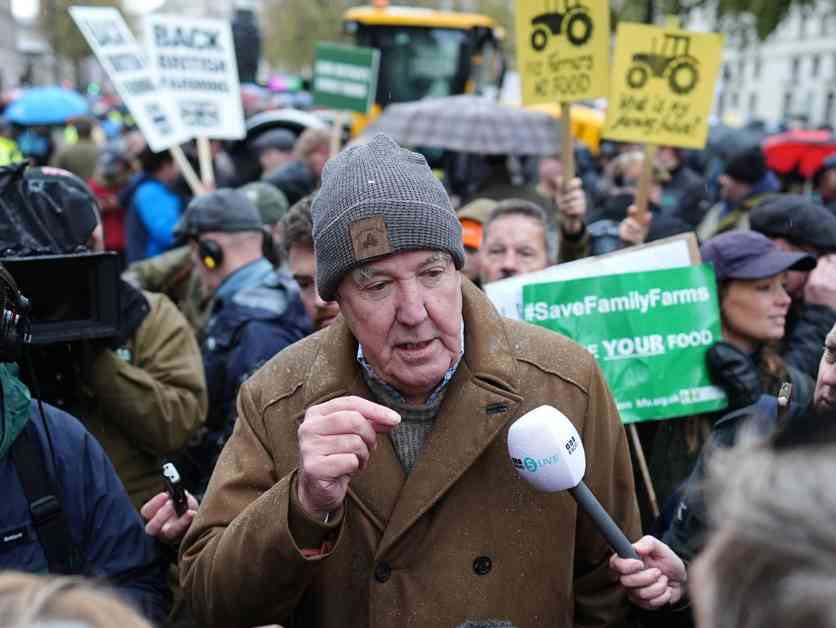Leading farmers are expressing their frustration with the government’s decision to reduce inheritance tax relief on agricultural properties. Around 13,000 farmers gathered in Westminster to protest this move, with many suggesting that more extreme actions may be necessary if the government does not reconsider.
NFU president, Tom Bradshaw, emphasized the need for a tougher approach with ministers and more disruptive demonstrations. He warned that further localised actions could be expected if the Budget measure goes ahead. The agricultural community is concerned that the policy will lead to food shortages and the breakup of family farms, impacting 75% of farms.
Despite these concerns, ministers have stood by the plan, rejecting claims that many will be affected. TV personality Jeremy Clarkson joined the protesters, calling the policy a “hammer blow to the back of the head” for agriculture. Police reported incidents where protesters forced farm vehicles through “no entry” barriers, and government officials like Kemi Badenoch assured demonstrators of a potential policy reversal.
Farmers like Oliver Atkinson and Tom Morphew highlighted the importance of standing up for the next generation of farmers and the impact on food production. They expressed fears that relying on food imports could lead to shortages and increased prices. While the protest was mostly peaceful, some incidents, like tractors ploughing into no entry signs, were deemed unacceptable by authorities.
In response to the protests, the government defended the policy, stating that difficult decisions were made to address gaps in public finances. Chancellor Rachel Reeves highlighted the importance of investing £5bn into farming over the next two years to support sustainable food production, rural economic growth, and nature’s recovery.
NFU president Tom Bradshaw indicated a potential disconnect between the Department for Environment, Food and Rural Affairs (Defra) and the Treasury regarding the policy. He suggested that there may be conflicting figures and lack of consultation between departments, raising questions about the policy’s foundation.
While Treasury data shows that the majority of farmers will not pay inheritance tax under the new changes, farmers argue that Defra’s data presents a different perspective. According to Defra, 66% of farm businesses exceed the £1m threshold, requiring them to pay inheritance tax.
The ongoing debate between farmers and the government underscores the need for a collaborative approach to address concerns and find solutions that support the agricultural community. As discussions continue, it remains to be seen how the government will respond to the farmers’ demands and whether any adjustments will be made to the contentious inheritance tax relief policy.












